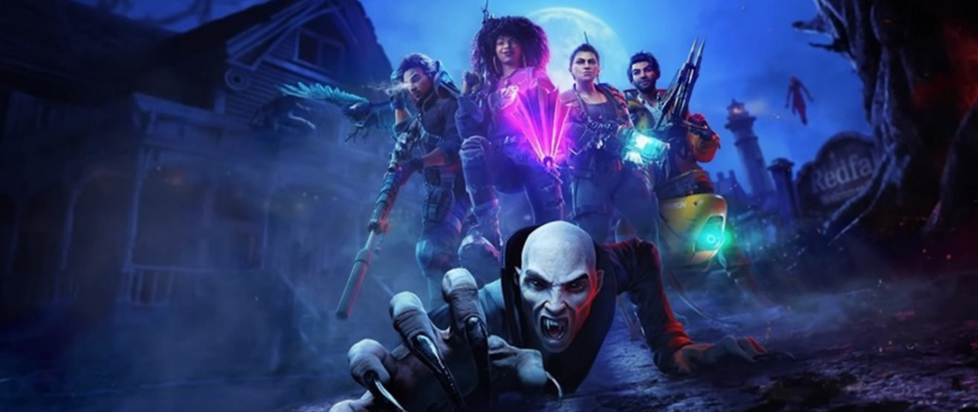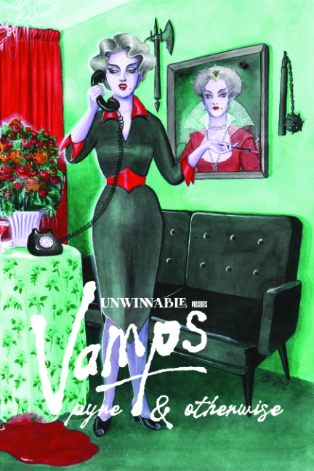
A Different Sort of Vampire: The Endemic Issue Behind Redfall’s Critical Flop

This column is a reprint from Unwinnable Monthly #168. If you like what you see, grab the magazine for less than ten dollars, or subscribe and get all future magazines for half price.
———
We are what we’re afraid of.
———
If you blinked in May of 2023, you were likely to miss it: Arkane Austin released their open world vampire looter-shooter Redfall to immediate critical and audience panning, and now, a paltry four months later, the game (still selling for $69.99) has a 24-hour peak of only 30 players on Steam, with under six hours of median playtime.
The justifications for this utter rejection are many: critics and players had valid complaints about mechanical bugs and glitches within the game on launch, that often-made parts of the experience unplayable. There were also discussions of the repetitive nature of several of the missions – after a few hours, it felt like the same rote objectives were being recycled over and over. What this did, ultimately, was create an experience that made it difficult for audiences to find the fun, and the game has now all but disappeared from the landscape.
But none of that, I argue, is actually a good reason for Redfall to have disappeared.
While the game was quite flawed at launch, this can be said of the vast majority of games, with the concept of the Day One Patch now ubiquitous. Further, many games released by parent company Bethesda Softworks remain buggy in substantial ways in perpetuity – people still find great glee in discovering glitches and bugs in the Fallout franchise, for example. While some games are so buggy as to make playing the game more frustrating than fun (pour one out here for the launch of Cyberpunk 2077, which hard-crashed my PS5 multiple times), I no longer understand why players pick up a game on launch, find it flawed and then abandon it permanently, when they know for a fact that there are whole teams of people dedicated to post-launch support and improvement. I picked Redfall up for the first time just a few weeks ago, and I found it to be a relatively smooth play experience – no major issues across any of my play sessions. This is even more of an applicable point when, with the ubiquity of GamePass Day One Launches, people are now no longer paying full market price for new releases a lot of the time, so there’s very little buyer’s remorse involved.

The other main complaint, repetitive quests in the open-world environment, also doesn’t justify the universal disdain for Redfall. Do a lot of the quests have a procedurally-generated feel to them? Of course. Such is the lot of any persistent open-world experience. The issue here is that this complaint seems, in a way, unique to this game, and is not levied at other games that do this exact thing in equal or greater measure. All you have to do to see my point is to play around an hour of any Destiny content (sorry not sorry to fans). What is loved in one place is reviled in another.
So, what’s my point here, other than a generalized defense of the vampire game in the vamp(ire) issue? I believe that Redfall is an excellent test case for how capitalist gamer culture has turned some gaming consumers into a particularly odious, never-satisfied group of soulsuckers that game developers are forced to kowtow to. In other words, vampires. Mechanical issues like those that happen with Redfall occur because of toxic crunch culture, which occurs because the consumer base constantly clamors for shiny new toys at beyond the speed of light, and game devs regularly receive death threats for things like announcing project delays. The gamers help create the conditions for shoddy game releases and then throw fits because devs could not do the impossible. Capitalism, at its heart, tells us that we can demand miracles at the bargain price of the health and wellbeing of the worker, and gamers appear to have swallowed this idea whole.
So, in a nutshell, mainstream games crit has gone entirely off the rails because of the customer-service model of gaming that turns a piece of media art into a transaction whose quality is assessed via opaque and ever-shifting standards by a mass of folks who may or may not have any idea that they’re being hypocritical. Do I recognize the irony and elitism inherent in someone with a Ph.D in Digital Rhetoric making this claim in an independent media crit venue? Of course. Am I going to say it anyway? Yes. Both because I feel this is an important point to make and because my other option for this month was writing about (gag) Castlevania.
———
Emma Kostopolus loves all things that go bump in the night. When not playing scary games, you can find her in the kitchen, scientifically perfecting the recipe for fudge brownies. She has an Instagram where she logs the food and art she makes, along with her many cats.




